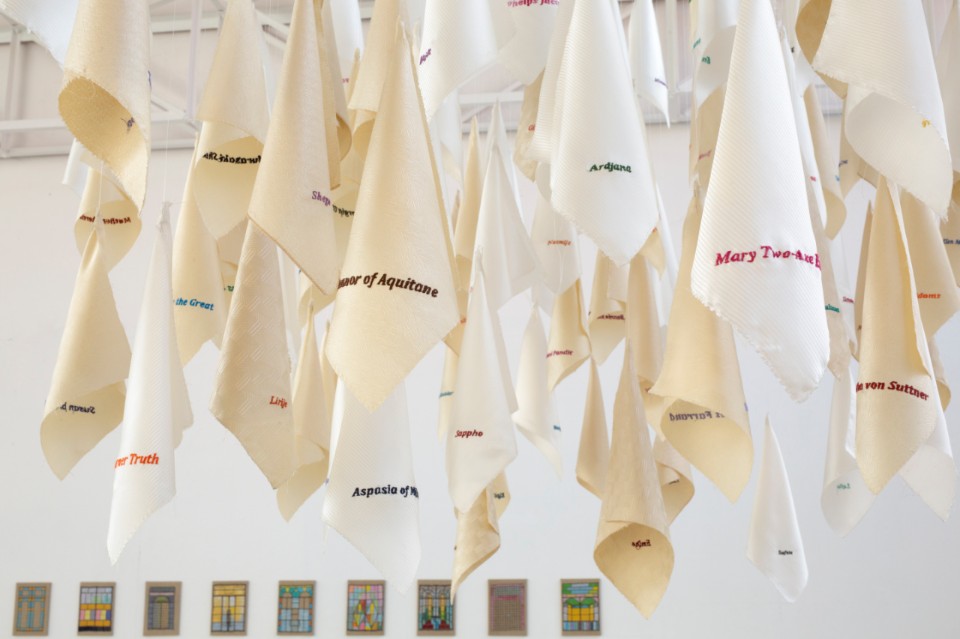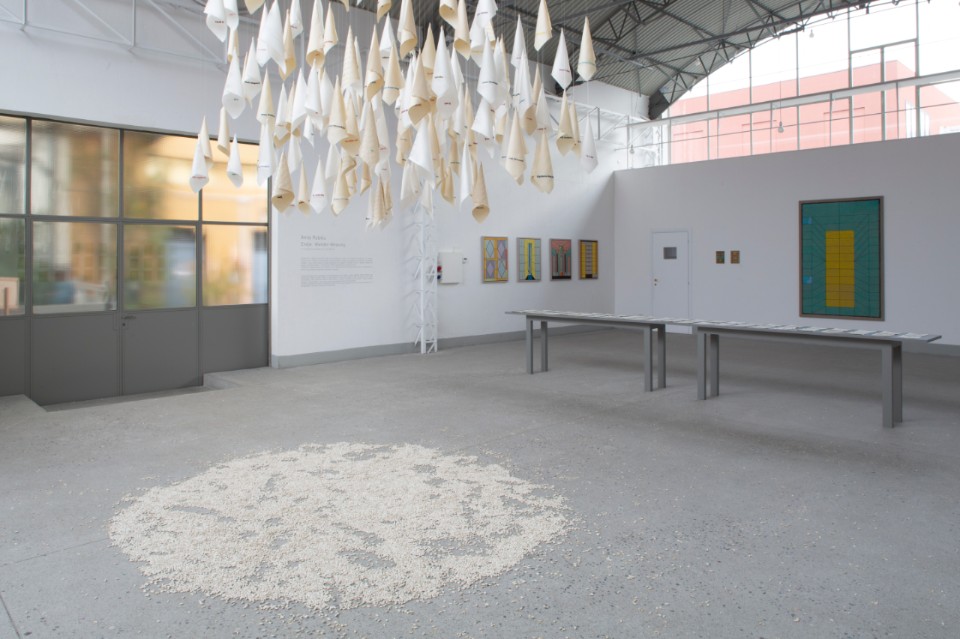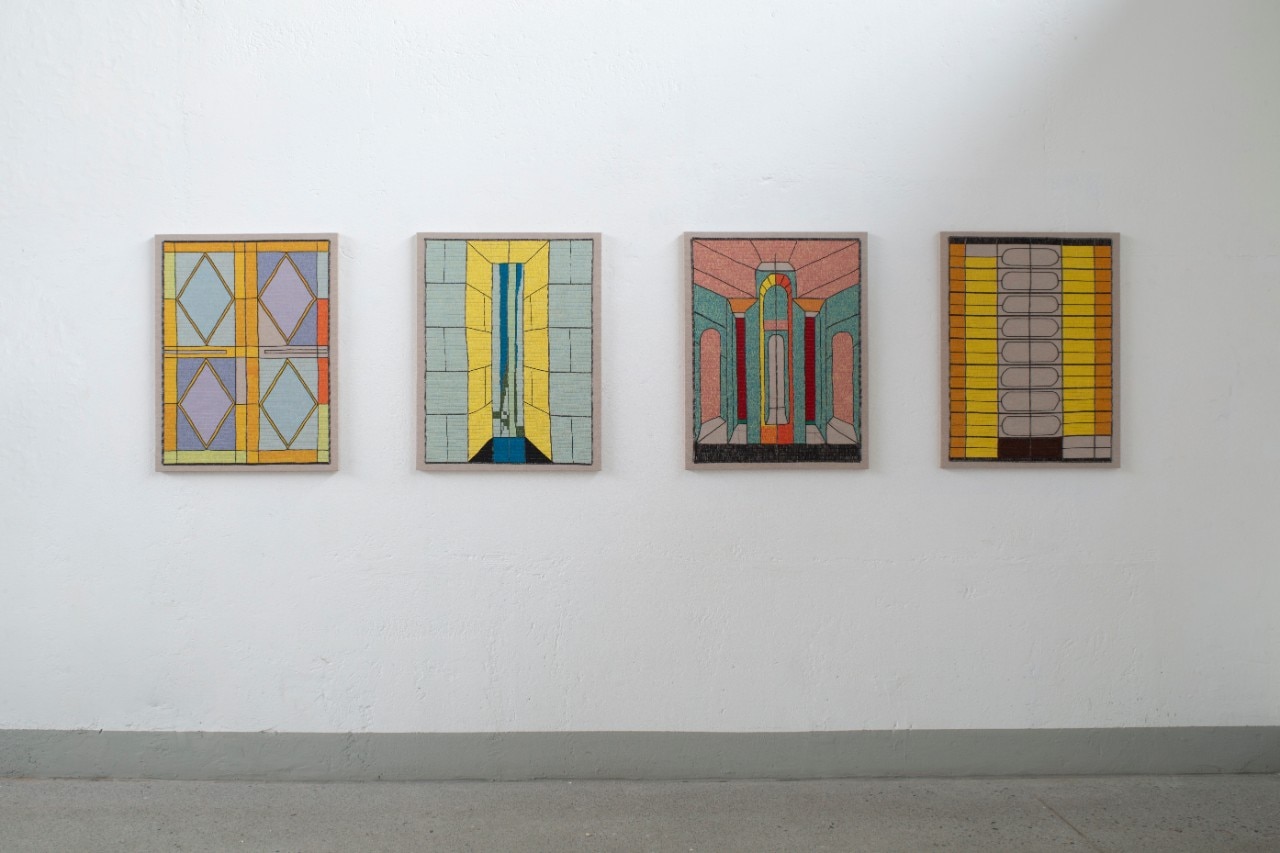Weaving and wandering: this is the double meaning of the Albanian word “endje.” In her work, Anila Rubiku intertwines the physical act of weaving with the fluid, dynamic act of wandering, searching, and exploring. Born in Albania in 1970, Anila arrived in Italy in 1994, one of thousands of Albanians seeking refuge and opportunity after the collapse of a brutal regime that had oppressed her homeland for over half a century. “I felt ignorant,” she told Domus. “I knew everything about the past, in literature, music, art, but nothing about the present, nothing about the world I was living in, nothing contemporary.” Eager to bridge this gap, she enrolled at Brera Academy and supported herself through her studies.
“With little money,” she explains, “I got around on a bike and discovered a side of Milan few people see, crossing its narrow streets and alleys, coming across entryways and courtyards. I came to know Milan's grays and mists. And the city began to inspire my work.”

“Endje: Wander-Weaving” is open until January 24, 2025 at the Assab One – the exhibition space created within the former GEA industrial space on via Assab in the Cimiano area. It celebrates the city’s hidden beauty, the kind of Milan she came to know and understand over the years.
Take, for example, the canvases, embroidered with vibrant silk threads of different colors, that make up her series The Inner Door. At first glance, they evoke Paul Klee’s abstract paintings, but their true inspiration comes from the intricate interior doors of Milanese apartment buildings, crafted by architects, blacksmiths, and clever craftsmen. “I’ve always thought that Milan had something Scottish-like or Arabic-like,” Anila reflects. “Because it reveals nothing at first glance. It’s hidden, secretive, veiled, it must be discovered, unveiled. Milanese buildings often have two doors: the outer one that seals everything off and a second, inner door that opens to courtyards and gardens, enriched with color and glass, touched by sunlight, but visible only to those who live there.”

Over the years, Anila Rubiku has photographed these second, inner doors, turning these images into a kind of diary, travel notes. From these photos, portraying important doors, not only for their size – some measure 7 x 5 m others 9 x 7 m – Anila Rubiku created 135 intricate drawings, which became the woven silk-thread canvases for the exhibition. As the exhibition’s curator Edi Muka writes, in these works, “the boundaries between architecture and emotion blur into delicate embroideries of memory and experience, becoming a love letter to the city, written not with words but woven with threads and color.” Anila Rubiku’s is a threadlike world in which design, decoration, and embroidery intertwine in rare and stunningly elegant, textile compositions.
I got around on a bike and discovered a side of Milan few people see, crossing its narrow streets and alleys, coming across entryways and courtyards. I came to know Milan's grays and mists. And the city began to inspire my work.
Anila Rubiku

But this artist and designer’s work does not stop here; she imbues her art, her wondering and weaving, with a profound social and political message. A standout piece in the exhibition is Ain’t I a Woman?, a collaborative project with a community of Roma women from Durrës, Albania – a vulnerable community subject to poverty, racism, and discrimination – that sheds light on the shared struggle of women generation after generation. As in an act of restitution and recognition, Anila asked these women to embroider the names of influential figures in the struggle for women’s liberation and equality, from Miriam Makeba to Shirin Ebadi, onto 100 silk handkerchiefs. She then embroidered the names of the Roma women who had created these works onto additional handkerchiefs. In the exhibition, the handkerchiefs are displayed suspended in the air, resembling “a flock of birds or a dreamy cloud,” as the curator describes them. Beneath them, the floor is covered with beans – a nod to Albania’s Communist past and the only aliment that would satisfy their hunger – hindering the visitors’ movement and forcing them to find their balance with each step.
The exhibition also includes her latest work, Defiants’ Portraits #1–12, a series created from a workshop Anila Rubiku conducted with incarcerated women. These women used art to protest their fate, the absence of safety for vulnerable groups of women and the lack of legal protection. In Albania, domestic violence is often dismissed as a private family matter, and abusive husbands are never taken to court. In some cases, desperate wives wind up killing their abusive husbands and end up in prison since the law rarely acknowledging mitigating circumstances. Collaborating with these women, Anila Rubiku first created a series of artwork in iron, then translated their stories into watercolors – a technique that slips away through your fingers, just like the life of these women – and finally, once again, embroidery. The pieces depict barred windows, each one of them abstractly representing Anila Rubiku’s vision of these women’s personality, gleaned from their work and their own words. Through weaving and wandering, Anila Rubiku has created her personal artistic world that sheds light and gives voice to our world as well, laying bare the injustices and inequalities that continue to scar and hurt many stories and lives.
- Exhibition:
- Endje: Wander-Weaving
- Location:
- Assab One, Milan, Italy
- Dates:
- From 20th Noovember 2024 to 24th January 2025













